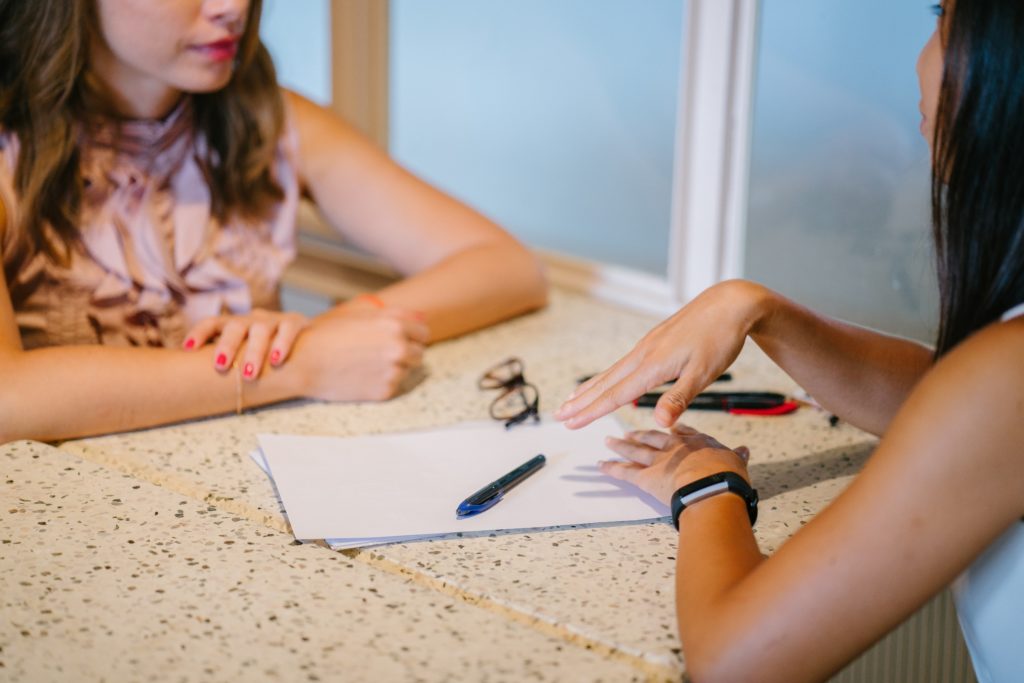Finding the right therapist is no easy task. When you are not feeling your best, this can often feel insurmountable. You are not alone. This new series from the Young Adult Council will share the experiences of other DBSA community members who have been there, too.

I have spent more hours browsing Psychology Today for a therapist than I’d like to admit. Therapy is something I have participated in on and off for the last seven years. Different therapists have brought different things to the table, and I can confidently say that I have had a pleasant therapy experience.
My first therapist was not someone that I picked since I was 17, but we paired together well. She was young, warm, and helped me figure out how I could make therapy work for me. I like to think of her as a “starter” therapist. She helped me scratch the surface, but she and I both agreed that it would be best for me to find someone new.
After moving, I met with the director of a therapy practice and she paired me with – no surprise – her youngest female therapist. She and I got along fine, but I didn’t feel the same level of trust, which made it harder to talk as openly as I wanted. I felt sometimes she said things I wanted to hear, and nothing she said was very constructive; it felt more like venting to a friend. I asked if someone else in the practice was available but they insisted that she was the one who could help me most. When I brought my concerns to her, she kept pushing group therapy as a solution. I started scheduling my appointments further and further apart until I stopped going.
I moved again, and this time I was determined to find a therapist that would understand and help me. I remember finding one, thinking she sounded too good to be true. When I walked into her office, I immediately felt comfortable. There was a well-loved couch for me, a velvet chair for her, a rainbow tapestry on the wall, and an easy-to-reach box of tissues but not in my face. I sat down and was met with warmth and understanding. She and I met twice weekly for a few months, then worked to once a week for a year until she moved away.
So what worked? So many things. A big part of why I chose her in the first place was that she is Black. I am biracial and often felt in the past white therapists didn’t understand the Black experience, which led to me feeling a bigger disconnect. Having a black therapist opened up new doors for me and allowed me to have conversations that in the past I had been unable to have. I later found out my therapist herself was a part of the LGBTQ+ community. While she had listed that she specialized in working with that community, I have found many therapists say that but lack the knowledge needed to best support us. My queer identity was still new to me. Seeing the rainbow tapestry made me feel safe – but when she casually slipped into the conversation something her “partner” had said, I really felt safe. With her, I was allowed to exist as who I was. I didn’t feel judgment or shame. It is with her I made some of my biggest breakthroughs. She gave constructive feedback, coping skills that were tangible for me, and helped me set goals that were high but still achievable. When I told her an exercise didn’t work for me, we tried something else.
When she told me she was moving away, I felt a devastating loss because we had put in so much work, but what amazed me is that even after she left I felt okay. She set me up for success by reminding me that my journey wasn’t linear, that there would be ups and downs, but I would make it through.
Since then, I am still searching for a therapist that fits. Finding the right therapist helps you in the future because you know what works for you. I know now that having a therapist that is a part of my community makes me feel more comfortable. I learned that a therapist should be active during a session – I am not there just to be listened to, I am there to talk through problems, learn new skills, and work on myself. I am not going to therapy to be fixed, I am going to therapy so I can grow.


